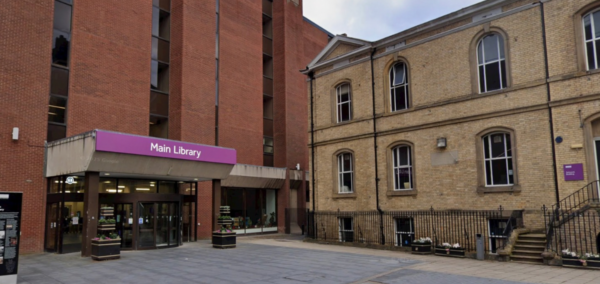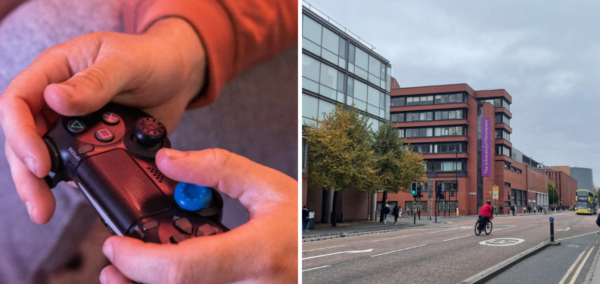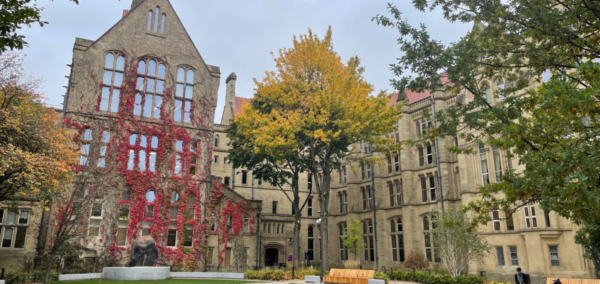
Here’s a rundown of every university in London’s policy on using AI in your work
I promise I didn’t use AI to write this article
It’s two minutes before your seminar is due to start and to try to disguise the fact that you haven’t completed the assigned reading, so you ask ChatGPT to summarise the article.
Luckily, this probably won’t result in any disciplinary action but to clarify what can, every university in London has produced a policy on the use of AI. Useful, if you ask me.
To (hopefully) prevent any unwarranted accusations of plagiarism, here is every London university’s position on the use of AI.
However, before we get into it, all universities in London consider using generative AI to write an assessment and submitting it as your own work to be a form of academic misconduct or plagiarism, though the leniency of their policies on the ethical use of AI varies.
So, let’s get into it.
Birbeck, University of London

Birkbeck has a strict policy towards the use of AI, stating that “you must not submit work for assessment that has been generated by a chatbot or AI tool” unless explicitly permitted.
However, on a more positive note, Birbeck recognises that AI can be a useful support tool to summarise concepts, understand complex ideas, or overcome writer’s block.
City, University of London

Most Read
Equally, City only allows the use of AI in assessments if “you have been instructed by your module tutor or programme director to do so,” and just like Birbeck, the university also notes that AI can also be helpful as a support tool.
If you use AI in assessments though, you must reference it.
Goldsmith’s, University of London

via Google Maps
Similarly, Goldsmiths advises that “the use of AI tools may be legitimate within some assessments, where this is the case, this will be set out in the module specification or assessment brief.”
The university also, like with City, require you to reference AI, if it’s been used in an assessment.
Brunel, University of London

via Unsplash
Brunel provides a guide on how to use AI ethically which advises students to “be transparent” about their use of AI and to only use AI as a learning support tool, while also highlighting issues around personal privacy, inaccuracies, and bias.
Brunel also requires you to reference AI, if you have used it.
London South Bank University

via Google Maps
London South Bank`s policy informs students that there is “a lot to be wary of” when it comes to using AI, though they do encourage students to use AI to improve critical thinking, provide general introductions to topics, summarise complex concepts, and help generate initial thoughts.
Furthermore, if you’ve used AI at London South Bank, you also must reference it.
Imperial College London

Imperial College London is slightly more lenient in its policy on the use of AI, stating that “you should include a statement to acknowledge your use of generative AI tools for all assessed work.”
University of Westminster

Similarly to Imperial, the University of Westminster’s policy also requires students to include a statement disclosing their use of AI in assessments.
However, the University of Westminster does encourage students to explore the use of AI in non-assessed tasks as well as outlining the limitations that AI presents.
UCL

via Unsplash
UCL’s policy isn’t as rigid as many other universities.
Instead of issuing an overall policy on AI, it has opted to use a three-tiered categorisation system that allows individual departments to decide the extent to which AI use is permitted in assessments.
These categories range from no permitted use of AI to full permitted use of AI.
LSE

via Google Maps
LSE’s policy is very similar to UCL’s, as it also has a three-tiered system with the categories also ranging from AI being not allowed to it being fully allowed.
King’s College London

King’s College London states in its policy that it “expect[s] students to critically engage with ideas and content produced from or with generative AI” and the university acknowledges the use of AI is sometimes required.
Once again, if AI has been used, students must acknowledge this in their work.
SOAS

SOAS also affirms the importance of being critical about content produced by AI, recognising that “AI produces a very generic, often surface-level response.”
St Mary’s University, Twickenham

via Google Maps
St Mary’s University has a more lenient policy which encourages students to seek advice from their course tutors or academic departments on the appropriate use of AI.
However, referencing when using AI is required.
Queen Mary, University of London

Queen Mary also encourages students to seek advice from their lecturers or course departments on the appropriate use of AI in assessments.
Referencing AI is required here too.
UAL

Queen Mary and St Mary’s’ policies are similar to UAL’s which advises that if “you are considering using generative AI as part of your assessment you should talk to your tutors during crits, tutorials, and/or other feedback sessions.”
To avoid plagiarism, UAL advise that you track the use of generative AI in your work and ensure that it is properly referenced.
University of Greenwich

via Google Maps
In my eyes, the most lenient policy towards the use of AI belongs to the University of Greenwich which says that it “encourage[s] the use of AI as a learning tool.”
However, you must declare if you have used AI in your work.
University of East London

via Google Maps
This positive approach is reflected in the AI policies of the University of East London which encourages students to use AI ethically to support their studies.
Like with Greenwich, you must also declare your use of AI.
London Metropolitan University

via Google Maps
This is the same at London Metropolitan University.
Unsurprisingly, you also have to reference if you’ve used AI in your assessments here too.
Related stories recommended by this writer:
• Brunel joins University of London federation as the group’s 18th member
• ‘It’s cheap as chips’: Labour MP finds summer home in LSE student accommodation
• Tree hailed as ‘campus landmark’ at Goldsmiths University has been blown down during storm
Feature image via Google Maps and Unsplash



















